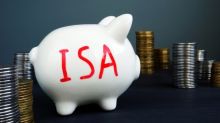NIKKEI 225
37,173.00 -906.70 (-2.38%) HANG SENG
16,184.02 -201.85 (-1.23%) CRUDE OIL
84.80 +2.07 (+2.50%) GOLD FUTURES
2,400.40 +2.40 (+0.10%) DOW
37,775.38 +22.07 (+0.06%) Bitcoin GBP
50,162.98 +256.59 (+0.51%)
Pfizer Inc. (0Q1N.IL)
| Previous close | 25.40 |
| Open | 0.00 |
| Bid | 0.00 x N/A |
| Ask | 0.00 x N/A |
| Day's range | 0.00 - 0.00 |
| 52-week range | |
| Volume | |
| Avg. volume | 338,697 |
| Market cap | 153.336B |
| Beta (5Y monthly) | 0.57 |
| PE ratio (TTM) | 6.73 |
| EPS (TTM) | 3.76 |
| Earnings date | 01 May 2024 |
| Forward dividend & yield | 1.64 (5.31%) |
| Ex-dividend date | 08 Nov 2023 |
| 1y target est | N/A |
 Fool.co.uk
Fool.co.uk2 dividend growth shares I’ve just bought for my Stocks and Shares ISA
Stephen Wright's been looking beyond the UK for dividend shares in the last couple of weeks. Here are the opportunities he thinks are too good to miss. The post 2 dividend growth shares I’ve just bought for my Stocks and Shares ISA appeared first on The Motley Fool UK.
 Benzinga
BenzingaJohnson & Johnson Shows Focus On Strengthening Its Business Upon Its Consumer Health Unit Spinoff
On Tuesday, Johnson & Johnson (NYSE: JNJ) delivered a rather mixed first quarter report. Adjusted earnings surpassed estimates as sales in its medical devices business surged, while revenue was almost in line with estimates. First quarter results came shortly after JNJ’s expansion in the cardiovascular space with the $13.1 billion acquisition of heart device firm Shockwave Medical Inc (NASDAQ: SWAV). First Quarter Highlights For the period ended in March, the healthcare company posted a revenue
 Zacks
ZacksWhy the Market Dipped But Pfizer (PFE) Gained Today
Pfizer (PFE) closed the most recent trading day at $25.91, moving +0.19% from the previous trading session.